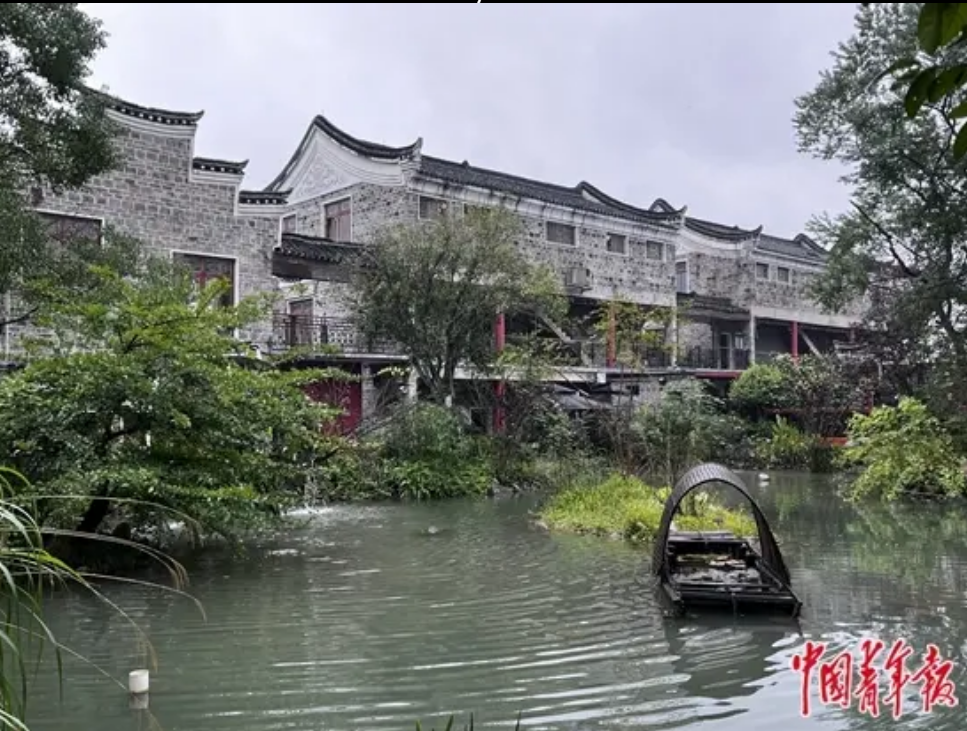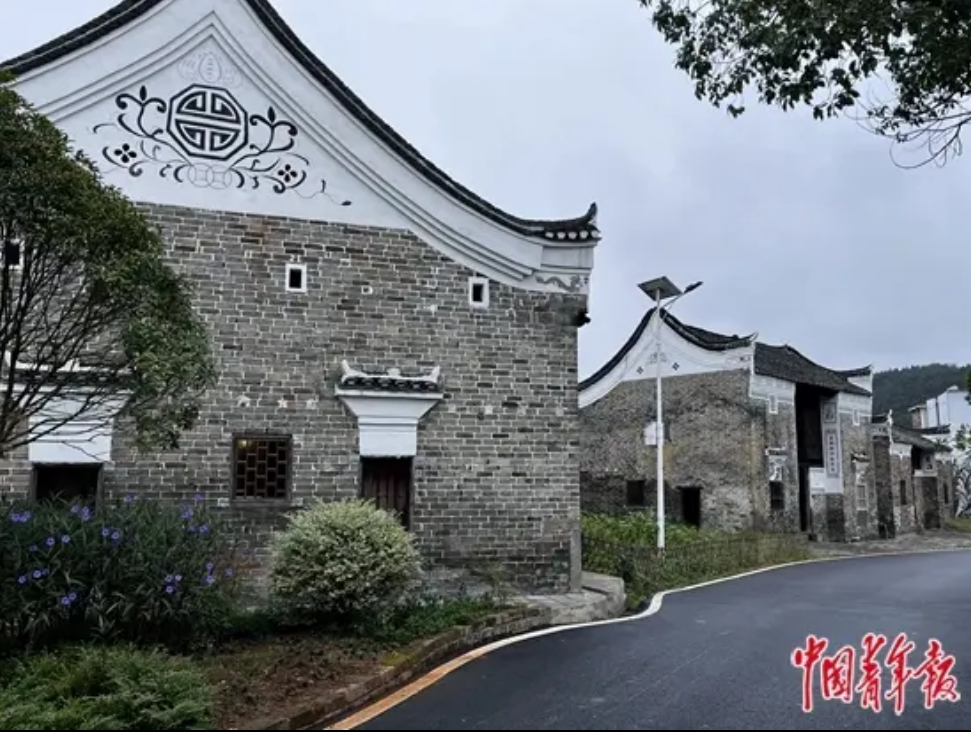‘Awaken old houses’ helps make rural areas vibrant
2023-11-23
In the Maoping Village Historical Museum of Huatang Town, Beihu District, Chenzhou City, four new chandeliers have been installed above the old stove, and pictures of rural changes are neatly hung on the walls, though the walls and roof are the same as before.

According to Li Ming, a member of the Maoping Village Party Branch, it was built in 1904, with grey bricks, black tiles, and carved large windows. After later generations moved to a new house, this old house remained idle for more than 20 years, filled with debris.
Since the “Awakening Old Houses” pilot project was launched in Beihu District, Chenzhou City in February this year, five hundred-year-old houses in Maoping Village have been included.
As of now, a total of 820 old houses have been renovated in Beihu District and used for catering, homestays, handicraft workshops, left-behind children’s homes, cultural inheritance, rural youth entrepreneurship, agricultural product processing, and warehousing and transportation.
Beihu District is located in the west of Chenzhou City, and is a transportation hub where the 107 National Highway, Beijing-Zhuhai Expressway, Beijing-Guangzhou Railway, high-speed railway, and Beihu Airport converge. The county economy is relatively developed.

However, since the new rural construction, more than 35% of the houses in the rural area had been idle for a long time. There were 2,017 idle houses that could be transferred and leased, with more than 700 old houses along the Xihe River.
Revitalizing idle rural old houses has become a crucial issue in rural revitalization.
The pilot project of “awakening old houses” in Beihu District was inspired by the “Save Old Houses” launched by the China Cultural Relics Protection Foundation in Songyang of Zhejiang, Jinxi of Jiangxi, and other areas since 2016.
“Awakening Old Houses” includes urgent repairs of rural cultural relics and buildings, and various types of characteristic idle old houses in rural areas to inherit rural culture, and develop rural economy.
After Xiao Xiuling, the founder of “Black Rice Sister”, was laid off from a nitrogen fertilizer factory in Xiameiqiao Subdistrict, Chenzhou City, she rented over 200 mu (about 13.33 hectares) of agricultural land in Maoping Village to plant black rice and start her own business.
She rented two hundred-year-old houses in the village as a display window and a catering base for the black rice series products. Since the operation of the “Black Rice Sister” old house in March this year, it has hosted more than 20 large-scale public welfare and folk activities, attracting nearly 10,000 tourists and promoting the sales of agricultural and sideline products in the village for over 100,000 yuan.
In Huatang Town, 328 old houses can be transferred and leased, and of them, 74 have signed formal transfer agreements. At the same time, preferential policies such as providing farmland and forests for “new villagers” and reducing rent for 1 to 5 years will be given to attract young talents and social capital to help rural revitalization.
He Haijiang is an inheritor of the firing technique of sand jars in Lutang Town, Beihu District.
This ancient firing process of colorless and unglazed carbonization kiln transformation was passed down to his hometown by the descendants of He Rulin, a famous person from Lutang Town, Guangdong Province. It has a history of nearly 800 years and has been included in the third batch of municipal-level intangible cultural heritage list in Chenzhou City.
He Haijiang leased the idle house of former Lutang Coal Mine and turned it into He’s Ceramic Art Co., Ltd., for inheriting and developing the handicraft of sand jar firing.
Kuandong Village was originally a small village hidden in the deep mountains. Due to its proximity to the Yangtian Lake Scenic Area, He Guojun, Party secretary of the village, opened the first homestay inn “Kuandong’s Home” along with local villagers in the idle old office building, and helped villagers build more than 30 homestay inns with a sign of “Kuandong’s Home Branch” on them, attracting more than 80 villagers to return to the village and providing more than 150 jobs.
Fang Jie, from Qujing City, Yunnan Province, has awakened 12 old houses in Xiaobu Village, Baohe Yao Township, Beihu District, and contracted to operate a local internet-famous attraction. When he decided to start a business in this village, his relatives and friends were afraid that he would fail. He said that every generation has their own responsibilities and he invested his all wealth accumulated over 10 years in Xiaobu Village.
Liu Siwei, a librarian at the Hunan Research Institute of Culture and History, said that the “Awakening Old Houses” action in Beihu District has made the countryside vibrant.
Pan Lusheng, vice chairman of the China Federation of Literary, believed that as post-80s and post-90s generations have joined efforts to promote rural revitalization, the historical and cultural heritage is inherited, and modern industrial models in rural areas are developed. The contributions of young people have made the rural environment of Beihu more beautiful, and the masses happier.




